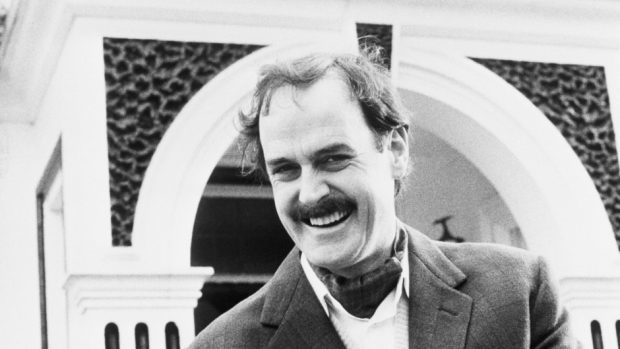I once held a door open for a man rushing out of an off-licence store and apologised to him for getting in his way.
To give him his due, he offered a polite “thank you” in return as he leaped past me with his arms full.
Seconds later I discovered that he was an armed robber who had just held the place up, and I had aided and abetted his getaway. To compound things, I also managed to clumsily obstruct staff who had been trying to chase the villain and he made clean his escape.
They were not too happy with my unwitting role as accomplice and some ripe comments were exchanged. I was too embarrassed to go in there again.
There is nothing wrong with being polite, of course, but there are limits. I was brought up to be ultra-polite and mind my manners.
Usually, after saying “hello” to someone – even complete strangers – the second thing I do is find a way to apologise for something. I say “sorry” to other people all the time. It drives my wife nuts, but I can’t help it – it was burned into my psyche by the time I was five.
So, I am prone to being subservient, but I also blame my Irish ancestry for being rebellious and fiery at times. It’s a strange mixture. If I had been in the hospitality business, I might have been from the Basil Fawlty college of hotel service.
Based on my experience with the armed robber, maybe I would have made a decent hotel doorman.
I did toy with the idea of entering the hotel industry, but was talked out of it by my school. This is why I was so interested in a P&J report which described how teachers were joining forces in the Highlands to persuade more pupils to consider a career in the hospitality industry.
Tourism is the lifeblood of many parts of the Highlands and Grampian, but even although the industry is expanding to meet growing demand, the numbers of young people seeking careers were described as “stagnating”.
Why do we treat food and drink jobs like Marmite?
Is it because they are perceived as underpaid and overworked? Or do British people have an innate dislike of serving others? Maybe it’s to do with our colonial or “upstairs/downstairs” past. We like to be served, but not actually do the serving.
It is strange when you consider that recent generations have been exposed to the rise of celebrity chefs, hoteliers and sommeliers, and the glamorous sheen this has given the sector – to the point where you would think young hopefuls would be queuing to get in.
The world can indeed be their oyster in a career with the potential to span the globe with infinite mobility.
There is a catch, of course.
It’s called hard work.
A generation of “millennials”, who reached working age at the start of the new century and those following in their footsteps now, have been getting a slating for expecting something for nothing.
Bosses’ organisations berate them for their poor attitude to work and self-discipline in managing their careers.
There is nothing wrong in bringing a fresh way of thinking to the modern workplace because that is the way we evolve as a society.
But certain traditions never go out of fashion, such as working hard to master a profession or trade, learning from your mistakes, getting the small details right – and your hands dirty, which is literally the case in a kitchen.
It helps if you really want to do something in the first place.
There is something about the artistry of being a waiter that is fascinating, but you can tell straight away who is really trying and who is going through the motions – and whose bosses are giving them the right training.
I was torn between journalism and the hotel industry, and I remember vividly a meeting with my headmaster and a careers master when I made this revelation.
A metamorphosis occurred which made them look like Mr Bumble in Oliver Twist after Oliver dared to asked for more food.
Journalism! Hotels! No, it was the car industry for me like everyone else.
It is so easy to be pigeon-holed at an early age and damaged for life, but it requires self-determination by the injured party to break the mould.
So, I ended up sweeping floors and heaving boxes of engineers’ tools around in a freezing warehouse which supplied the car industry. Sheer determination propelled me into a trainee reporter’s job 18 months later.
It’s funny how things turn out.
A few weeks ago I met a nice chap called Nick, from Nottingham, who is working in the hotel industry in Thailand. In fact, he settled there with his family after learning his trade and is deputy manager at a major five-star island hotel in the Gulf of Thailand.
His work ethic and career self-management seemed in perfect working order. You don’t get anything for nothing, which is as true this century as it was the last.
I envied his seemingly idyllic lifestyle in this tropical paradise and wondered briefly, as I flew home, if I should have gone into the hotel trade after all.
David Knight is the long-serving former deputy editor of the Press and Journal











